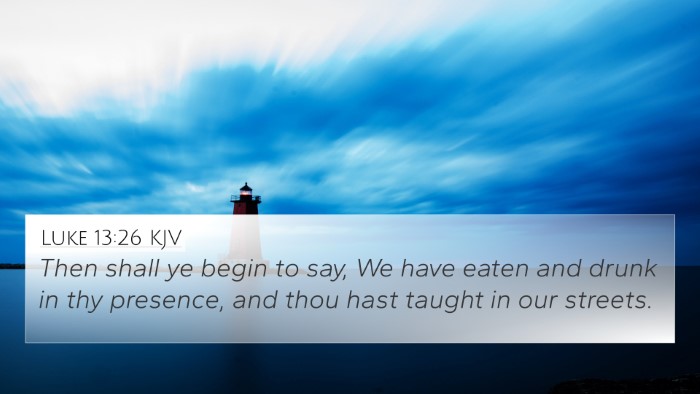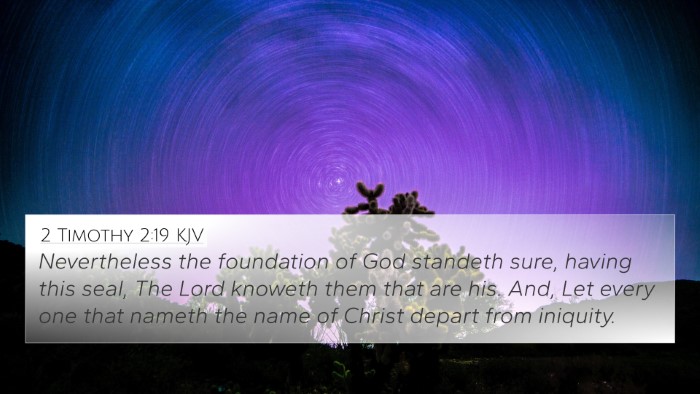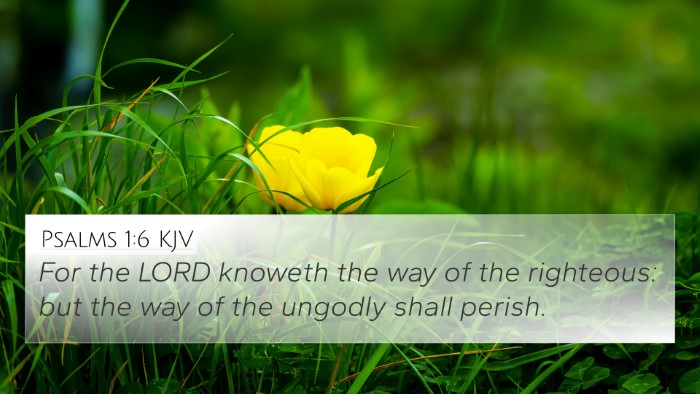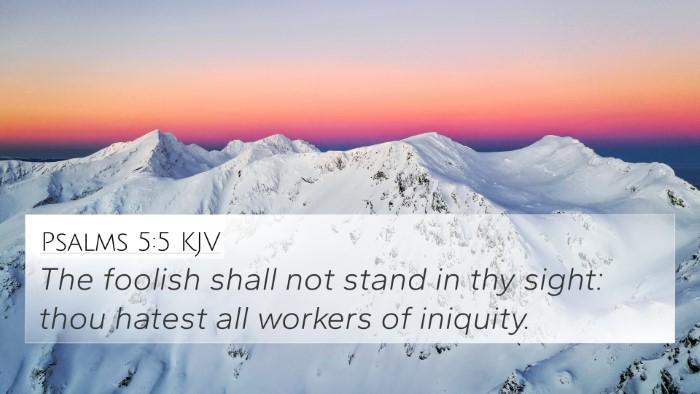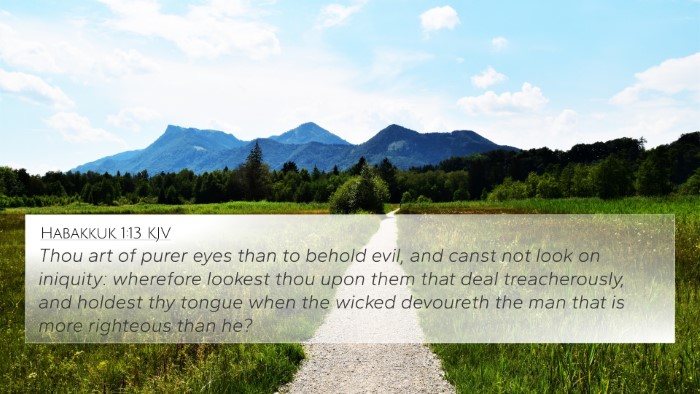Understanding Matthew 25:12
Matthew 25:12 states, "But he answered and said, ‘Verily I say unto you, I know you not.’" This verse is part of the parable of the ten virgins, which illustrates the importance of preparedness and vigilance in faith.
Summary of Matthew 25:12
This verse is spoken by the bridegroom in response to the five foolish virgins who were unprepared to enter the wedding feast. The bridegroom denies them entry, indicating that their lack of preparation has consequences. This serves as a poignant reminder to believers about the necessity of constant readiness for the coming of Christ.
Commentary Insights
Matthew Henry Commentary
Matthew Henry emphasizes that the bridegroom represents Christ, and his response underscores the seriousness of spiritual vigilance. The rejection of the foolish virgins signifies the eternal consequences of neglecting one's spiritual duties. Henry notes that it's vital to maintain a genuine relationship with Christ, characterized by good works, faith, and readiness.
Albert Barnes' Notes on the Bible
Albert Barnes explains that the phrase "I know you not" indicates a complete lack of relationship and recognition. He draws from various scriptures to point out that true knowledge of Christ comes from doing the will of the Father (see Matthew 7:21-23). The parable highlights that the foolish virgins, while being part of the company, did not truly belong because they were unprepared.
Adam Clarke's Commentary
Adam Clarke provides a linguistic analysis of the phrase and underscores the finality of the bridegroom's statement. He suggests that the parable is a warning against complacency in spiritual matters. Clarke also ties in the broader theme of preparedness found in scriptures like 1 Thessalonians 5:2-6, urging believers to remain alert and sober.
Cross-References and Thematic Connections
Matthew 25:12 has notable cross-references that shed light on its meaning:
- Matthew 7:21-23: "Not everyone who says to me, ‘Lord, Lord,’ will enter the kingdom of heaven..." – indicating the importance of true discipleship.
- 1 Thessalonians 5:2-6: Emphasizes vigilance and preparedness in the Christian life.
- Luke 13:25: The door being shut represents opportunities lost due to unpreparedness.
- Revelation 3:20: Christ knocking at the door symbolizes His call to readiness and relationship.
- Proverbs 1:28: A warning about the consequences of seeking wisdom too late.
- Ephesians 5:15-16: Encouragement to walk wisely, "making the most of the time."
- Hebrews 10:26-31: Warnings against willful sinning after knowledge of the truth.
Making Connections Between Bible Verses
Understanding Matthew 25:12 within the broader context of Scripture includes identifying thematic connections:
- **Preparedness**: The recurring call to be ready found in Matthew 24:44 and Luke 12:40.
- **Relationship with God**: The necessity of a personal relationship echoed in numerous verses, including John 10:14.
- **Judgment**: The theme of accountability throughout the scriptures, illustrated in 2 Corinthians 5:10.
Tools for Bible Cross-Referencing
Readers can explore these themes more deeply through various tools:
- Bible Concordance: A useful reference for finding specific terms and their occurrences.
- Bible Cross-Reference Guide: Guides that link verses thematically.
- Cross-Reference Bible Study: Methods for studying scripture in a cross-referenced manner.
Conclusion
Matthew 25:12 serves as a vital reminder of the necessity for readiness in the Christian faith. Through understanding this verse with insights from esteemed commentators and connections to other biblical texts, believers can better appreciate the importance of living a life that reflects vigilance and anticipation of Christ’s return.



